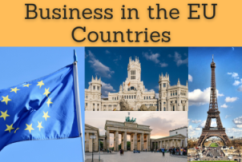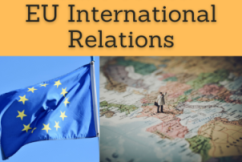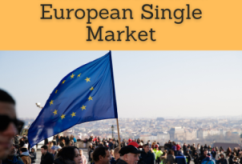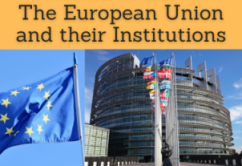Business in Sweden, Stockholm, Swedish Economy
Swedish Foreign Trade, Logistics. Stockholm, Hennes Mauritz, Ericsson (Sweden)

The Kingdom of Sweden is the home country of many innovations: dynamite, cream separator, Celsius temperature scale, Bluetooth, cardiac pacemaker, Tetra Pak packaging.
Sweden is one of the world leaders in research in biotechnology, medical innovations, microelectronics, information technology (IT) and telecommunications
- Introduction to the Kingdom of Sweden (EU)
- Doing Business in Stockholm
- Swedish Economy
- Swedish International Trade
- Case Studies:
- Hennes Mauritz
- Atlas Copco Group
- Ericsson
- IKEA
- Scania
- Securitas
- Tetra Pak
- Volvo
- Access to the Swedish Market
- Business Plan for Sweden

Transport and Logistics in Sweden. Access to the:

The educational aims of the Subject “Foreign Trade, Logistics and Business in Sweden” are:
- To analyze the Swedish Economy, Logistics and Global Trade
- To conduct research on business opportunities in the Swedish Market
- To research the trade relations of Sweden with the student's country
- To learn about Swedish trade agreements as a member of the European Union
- To develop a business plan for the Swedish Market

The Subject “Foreign Trade, Logistics and Business in Sweden” is included within the curriculum of the following academic programs at EENI Global Business School:

Masters: International Business, Foreign Trade.

Languages:  +
+  Suecia
Suecia  Suede
Suede  Suécia.
Suécia.
- Subject Credits “Doing Business in Sweden”: 1

International Trade, Logistics and Business in Sweden:


Swedish Preferential Access and Trade Agreements:

- Sweden and the European Economic Area
- European Union
- Economic and Monetary Union
- European Customs Union
- European Single Market
- The European Union Services Directive
- European Digital Single Market
- As a member of EU, Sweden is a beneficiary of EU Trade Agreements
- Council of the Baltic Sea States
- Regional Cooperation Council
- SICA (observer country)

- World Trade Organization (WTO)
- Agreement on Sanitary and Phytosanitary Measures
- Agreement on Trade in Services (GATS)
- Agreement on Technical Barriers to Trade
- Agreement on Preshipment Inspection
- Agreement on Safeguards
- Trade Facilitation Agreement
- World Customs Organization (WCO)
- Kyoto Convention
- United Nations
- Convention Harmonization of Frontier Controls of Goods
- CMR Convention
- Rotterdam Rules (Maritime Transport)
- Customs Convention on Containers - not a member
- COTIF Convention (Rail)
- BIC
- Chicago Convention (ICAO)
- International Maritime Organization (IMO)
- Convention for Safe Containers
- Istanbul Convention
- International Road Transport Union (IRU)
- TIR Convention
- Guidelines on Safe Load Securing for Road Transport
- CIM & CIT Rules (Rail Transport)
- International Chamber of Shipping
- International Chamber of Commerce

- Economic Commission for Europe (UNECE)
- European Union
- European Central Bank
- European Investment Bank
- European Bank for Reconstruction and Development (EBRD)
- Organization for Security and Cooperation in Europe (OSCE)

- Asia-Europe Meeting
- Inter-American Development Bank (Non-borrowing country)
- Asian Development Bank
- African Development Bank
- United Nations
- World Bank
- World Trade Organization (WTO)
- International Monetary Fund
- Organization for Economic Cooperation and Development (OECD)
- International Bank for Reconstruction and Development
The Kingdom of Sweden (Europe).
- Capital of Sweden: Stockholm
- Swedish Population: 9,593 million people
- Area of Sweden: 450,295 km²
- Swedish Borders: Norway and Finland
- Swedish is the official language of Sweden, being spoken by the majority of the population
- Government of Sweden: Parliamentary Monarchy
- King of Sweden: Carl XVI Gustaf of Sweden
- In 1995 Sweden separated from Norway
- Since 1814, Sweden has not taken part in any war
Main religion in Sweden: Protestants (Christianity).
Sweden belongs to the European Economic Area.
Swedish Economy
- Sweden ranks fourth in the competitiveness ranking of the World Economic Forum
- The pillar of the Swedish economy shifted from the agriculture and industry to services (telecommunications and information technology)
- Many multinational enterprises have their origins in the Kingdom of Sweden: Volvo, Astra, ABB, Ikea, Ericsson, Electrolux, H & M, Skype, Spotify..
- Currency of Sweden: Swedish krona
- Sweden is one of the least corrupt countries in the world
- Headquarters of the European Centre for Disease Prevention and Control (ECDC): Stockholm

Swedish Foreign Trade
- The Kingdom of Sweden export automobiles, metal-mechanical products, steel, electronic devices, communication equipment and paper-based export products
- Engineering services account for 50% of the Swedish exports
- Top Swedish suppliers: Germany, Denmark and the UK
- Main products imported by Sweden: manufactures, vehicles, machinery and chemical products
- As a member of EU, Sweden benefits from the EU Trade Agreements: Colombia, Chile, South Africa, Mexico, South Korea, Morocco, Tunisia, etc.
(c) EENI Global Business School (1995-2025)
Top of this page








 WhatsApp
WhatsApp